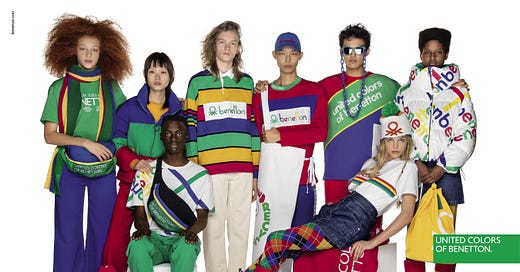Hola, bienvenue!
My name is Tania and this is the inaugural post of Home Mixed Home. I’ve imagined it as an online nook where we get to sit down, week after week, to celebrate and untangle the lovely chaos of living in a multicultural family.
This newsletter is for you if you’re raising multicultural children, thinking about having them, or if you’ve grown up in a mixed family. It’s for you if you want to know what the research says, and also enjoy dissecting experiences and feelings. I hope you’ll feel welcome no matter the shape of your family and respective backgrounds.

My definition of ‘multicultural family’1 is broad, personal and imperfect2. Maybe you and your beloved / co-parent / in-laws / children are visibly different: you come from distant parts of the globe, don’t have the same skin colour, or speak different languages. Maybe it’s less obvious: you hold the same passports and grew up in the same place, but like to celebrate distinct holidays and eat different foods. Either way, I’m interested in those contrasts (and conflicts) that make us notice our own default settings, that keep us alert and questioning.
Like David Foster Wallace said:
There are these two young fish swimming along and they happen to meet an older fish swimming the other way, who nods at them and says “Morning, boys. How’s the water?” And the two young fish swim on for a bit, and then eventually one of them looks over at the other and goes "What the hell is water?"
I have lived and worked in six countries, mostly in Europe, and grew up in a mixed family in times of globalisation anxiety, supranational optimism, and postcolonial malaise. My friends and I looked like a United Colors of Benetton ad, and while we probably felt some diffuse pride about that, I rarely thought deeply about what united or differentiated us.
That is, until I moved from cosmopolitan cities to smaller places, which felt more homogeneous and isolating, and especially until I started raising my own multicultural, plurilingual kids with my beloved.
I’m sure we face the same tricky questions as any other couple / parents. What values do we want to pass on to our children? How do we navigate relationships with our families of origin? What school do we pick—if any? I also believe that asking those questions across cultures / languages / races / religions / time zones etc. adds a layer of complexity and intensity to the mix.
If you’d warned me about that knottiness years ago—when I met said beloved, all wrapped up in my cross-border identity—I would have batted you away. Nah, we’ll be fine! It’ll be fun and interesting! I was both right and presumptuous naïve. We are fine; it is fun and enriching. And on occasion, it is also hard and confusing. Like when you speak your native language with your children, and they answer in another. Or when your in-laws roll their eyes at what they see as yucky food habits. Or when you have to worry about visas and border crossings to hug the people you love.
I see parenting as a gateway to working through our own stuff and relationships. Home Mixed Home will zoom out on vast issues (Where’s home? What does identity even mean?) and zoom in on pragmatic ones (What language do we choose to watch Bluey? What the heck are we eating for dinner?).
In my day job, I’m a science and policy journalist3; I love asking questions and trying to metabolise big ideas into simple words. I do not have the answers, but I’m excited to share ideas, possibilities, and solidarity so we can learn together and feel less lonely.
I’m planning to send you one email most Thursdays:
personal and reported essays;
Q&As with researchers / practitioners who pass on their expert knowledge;
interviews with multicultural parents who share how they do it and how they feel;
handpicked articles, books, podcasts, etc. to feed your multi-curious mind;
plus guest posts, discussion threads, and other things I haven’t decided yet.
If all of this speaks to you, click below to subscribe for free:
See you next week!
It’s hard to find stats about multicultural families, as “culture” is not defined in government census questionnaires, and data according to citizenship, place of birth, or ethnicity (when they exist) only capture a fraction of all mixed families. In England and Wales, for instance, 1.6% of households with dependent children ticked a “mixed” box in the 2011 census (one of five imperfect aggregated ethnic groups).
I realise other words could describe us, such as intercultural, cross-cultural, third-culture, syncretic? I might look into these semantic subtleties in more detail later.
For the past year, I’ve also been writing another newsletter about intrinsic motivation called Why Would Anyone, with funding and support from the Attuned writer fellowship. That project planted the seed for Home Mixed Home, and I will keep writing there about the reasons why we do the things we do. Check it out if you’re interested in human behaviour and personal growth, but wary of hacks and prescriptions.







Great start to this! Look forward to reading more.
Woohoo! Can’t wait to read!!!